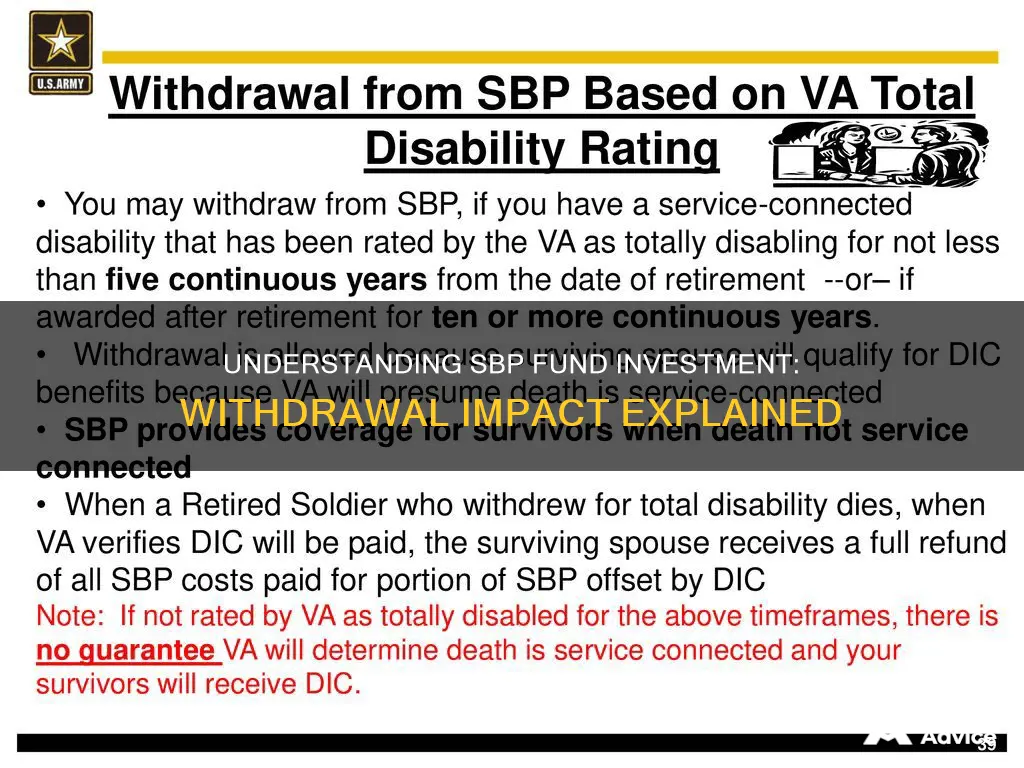
Systematic Investment Plans (SIPs) are a popular way to invest in mutual funds, providing a systematic and disciplined approach to achieving investment goals. However, investors may sometimes find themselves in situations where they need to stop their ongoing SIP investments. This could be due to various reasons such as financial emergencies, market volatility, or a shift in financial goals. When an investor chooses to stop their SIP, it simply means that no further automatic payments will be deducted from their account. The mutual fund units they have already invested in remain in the fund and continue to be subject to market performance. Investors have the option to restart their SIP in the future, and there are generally no penalties or charges for stopping or restarting. However, it is important to be mindful of the potential negative impacts of stopping an SIP, such as losing the benefits of compounding and delaying the achievement of financial goals.
| Characteristics | Values |
|---|---|
| What happens when an SIP is stopped? | No more automatic payments will be deducted from the investor's account. |
| What happens to the already invested amount? | The mutual fund units already invested will continue to be invested in the fund. |
| What happens to the value of the units? | The value of the units will continue to fluctuate based on the fund's performance. |
| Can a stopped SIP be restarted in the future? | Yes, investors can restart a stopped SIP in the same scheme in the future. |
| Does a stopped SIP incur any charges or penalties? | No, there are no charges or penalties for stopping an SIP. |
| Does a stopped SIP automatically redeem the invested amount? | No, investors must submit a separate request to the fund house to redeem the amount. |
What You'll Learn

No automatic payments will be deducted from your account
If you stop investing in SBP funds, no automatic payments will be deducted from your account. This means that you will no longer be contributing to your investments and your money will remain in your account. Here's what you need to know:
First and foremost, it's important to understand that stopping your investments in SBP funds does not result in any sort of penalty or fee. You have the flexibility to discontinue your contributions at any time without incurring additional charges. This gives you the option to opt-out conveniently if your financial circumstances change or if you simply want to explore other investment avenues.
When you decide to stop investing, it's crucial to inform your financial institution or investment manager. By doing so, they can ensure that no future automatic payments are deducted from your account. This process may vary depending on the specific policies of your financial institution, so it's always a good idea to clarify their procedures for discontinuing investments. They should provide you with clear instructions on how to halt future contributions.
Another important aspect to consider is the impact on your investment goals. Discontinuing contributions to your SBP funds means that your investments are no longer growing through regular contributions. This can potentially slow down your progress towards achieving your financial objectives. It's important to evaluate your financial plan and ensure that stopping the automatic payments aligns with your long-term goals.
Additionally, it's worth noting that you retain full ownership and access to your invested SBP funds even after stopping automatic payments. You have the flexibility to leave the funds in your account or explore other options. This allows you to make informed decisions about reinvesting or utilizing your funds for other financial priorities.
Finally, while discontinuing automatic payments provides you with choices, it's crucial to carefully consider your alternatives. Evaluate the potential returns, risks, and associated fees before making any decisions. Seeking financial advice or conducting thorough research will help ensure that any changes to your investment strategy are aligned with your financial goals and risk tolerance.
Best China-Focused ETF Funds: Smart Investment Options
You may want to see also

Units already invested in will continue to be invested
When you stop a Systematic Investment Plan (SIP) in a mutual fund, no more automatic payments will be deducted from your account. However, the units you have already invested in will continue to be invested in the fund. The value of these units will continue to fluctuate based on the fund's performance.
When you stop your SIP payments, it doesn't mean that your existing mutual fund units will be redeemed and the SIP account will be closed. Instead, the units already allotted remain invested in the mutual fund scheme and continue to grow or decline based on the market performance.
For example, an investor who started a SIP of Rs. 8,000 per month in an equity fund in October 2016 and continued it until October 2018, contributing a total of Rs. 1,92,000 to the scheme, would have accumulated 7,850.250 units in the scheme by the end of the SIP period in October 2018. After stopping the SIP, these units remained invested in the equity fund, and their value continued to fluctuate based on the performance of the fund's underlying securities.
It's important to note that stopping an SIP may have negative impacts such as financial indiscipline, loss of compounding benefits, delay in achieving financial goals, and emotional impact. Therefore, it is generally not advisable to stop SIP as the compounding effect discontinues. However, if the SIP payments are creating a financial burden or if the fund house is underperforming and the market is volatile, it may be wise to stop SIP after careful consideration.
Index Funds: Monthly vs. Annual Investments — Which is Better?
You may want to see also

The value of these units will fluctuate based on fund performance
When you stop a Systematic Investment Plan (SIP) in a mutual fund, no more automatic payments will be deducted from your account. The mutual fund units you have already invested in will continue to be invested in the fund. The value of these units will fluctuate based on fund performance.
When you stop your SIP payments, the units you have already been allotted remain invested, and their value will continue to be influenced by the securities included in the scheme. This means that the units' value will either grow or decline based on market performance.
For example, an investor who started an SIP of Rs. 7000 per month in July 2015 and stopped it in July 2017 would have invested a total of Rs. 1,75,000 in the scheme. They would have been allotted 6350.643 units, which remained the same as of April 18, 2022. However, the value of these units as of that date was Rs. 3,14,674, demonstrating how the value of the units can increase over time, even when no new units are being purchased.
It is important to note that stopping an SIP may have negative consequences, such as a loss of financial discipline, a delay in achieving financial goals, and an emotional impact. Therefore, it is generally not advisable to stop SIP unless there is a financial burden or the fund is underperforming.
Maximizing TFSA Investments: Strategies for Smart Financial Planning
You may want to see also

You can restart a stopped SIP in the future
If you stop your SIP, you may not be able to reach your financial goals unless you start again with a new investment. The benefit of compounding maximises when you invest regularly and stay invested, which will not happen if you stop your SIP. Stopping your SIP also nullifies the advantage of rupee cost averaging that your investment was garnering.
However, if you do decide to stop your SIP, you can restart it in the future. Once an SIP is stopped, an investor can restart the SIP at any time with the same amount or a revised amount in the same scheme. There are no charges or penalties for stopping an SIP. The amount already invested remains in the fund and keeps growing. The units already allotted remain invested and their value keeps performing according to the securities in the scheme.
It is important to note that stopping an SIP is different from pausing an SIP. While stopping an SIP is permanent, pausing is a temporary measure. Not all fund houses allow investors to pause their SIPs, but some do. If you want to pause your SIP, you need to inform your fund house in advance. You can either write a letter or fill out a form if your fund house has one. You should give at least a month's notice before pausing your SIP.
A Beginner's Guide to BSE Index Fund Investing
You may want to see also

There are no charges or penalties for stopping an SIP
When stopping an SIP, it is important to consider the reasons for doing so. Some common reasons for cancelling an SIP include market fluctuations, poor fund performance, changes in the fund's objective or management, and financial emergencies. It is advisable to consult with an investment expert or manager to understand the true impact of stopping your SIP before making any decisions.
The process of stopping an SIP typically takes 30-45 days from the date of the request. During this time, future purchases in the scheme are stopped, and no auto-debit transactions occur from the investor's bank account. The amount already invested remains in the fund and continues to grow, and investors have the option to restart their SIP or redeem their invested amount at any time.
In summary, while there are no charges or penalties for stopping an SIP, it is important to approach this decision with caution and consider the potential impact on your financial goals and long-term returns.
Hedge Funds: Where Are They Investing Their Money?
You may want to see also
Frequently asked questions
When you stop a Systematic Investment Plan (SIP) in a mutual fund, no more automatic payments will be deducted from your account. The mutual fund units you've already invested in will continue to be invested in the fund and their value will fluctuate based on market performance.
Yes, you can restart an SIP in the same mutual fund scheme at a later date. Most mutual fund companies allow investors to do this at their convenience. You can contact the mutual fund house by visiting its website or through customer support.
No, there are no charges or penalties levied by mutual fund houses for stopping SIPs. However, if you redeem your mutual fund units shortly after stopping your SIP, you may have to pay an exit load. Additionally, your bank may charge a penalty for missed auto-debit transactions.







